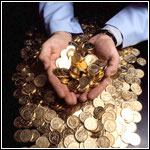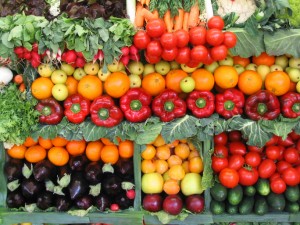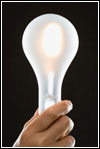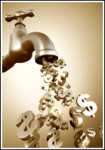The New Couponing: Save Money on Groceries, Part Two
Monday, January 25th, 2016Do you feel as though you need to take out a second mortgage these days to pay for groceries in Spruce Grove, Stony Plain, Parkland County and the Edmonton region? My recent blog article entitled “Hurting From Alberta’s Recession? 12 Tips to Save Money on Groceries” mentioned coupons as a way to save money at the till.
Where do you find coupons?
The old way was to clip coupons or rebate offers printed in newspapers and magazines, or pick them up at the grocery store. But much greater numbers of the discounts offered by stores and manufacturers can now be found on the Internet. You can achieve surprising savings this way.
Online Coupon Sites:
These websites provide coupons (for many things, not just groceries) that you can print out from your computer, or have sent to you by mail. You will need to spend time familiarizing yourself with each site’s offerings and be aware of regional offers and expiry dates, but the money you save can really add up.
Canadian Free Stuff
Coupon Click.ca
Free.ca
Grocery Alerts.ca (see especially: (SmartSource printable coupons. Smart Source will also send you sample packs of items, but that is a blog post for another day!)
Mrs. January.com
P&G Everyday (Proctor & Gamble: Samples from P&G too, some of them full size products!)
Red Flag Deals.com
Retail Me Not
Save.ca
Save a Loonie.com
Saveland.ca
Smart Canucks.ca
Simply Frugal.ca
Valpak.com
Websaver.ca
***Check out this digital couponing app — no more printed coupons: Coupgon (Read “Coupgon: Digital Couponing for Canadians” for the details.)
Cash Back Smartphone Apps:
These apps pay you cash after you upload a photo of your grocery receipt. Usually, the payment comes after a minimum dollar value has been accrued. The advantages to this system are that you don’t have to carry around printed coupons, and often there will be rebates on items for which coupons are almost never offered, such as produce. Here are four of the best:
Checkout 51 (See “Checkout 51: The Ultimate Guide“)
Snap by Groupon (See “Snap by Groupon: Everything You Need to Know“)
Zweet (See “Zweet – New Cash-Back Rebate App” )
CartSmart (See “CartSmart: Canadian Money-Saving App“)
***For even more information about these apps, plus 2 others.
Other Apps:
Two more apps to make grocery shopping simpler and save you money:
Flipp
Enter your postal code and you’ll see dozens of flyers for stores in your area. Set up your favourites list to find flyers for your preferred stores. The search feature allows you to find just the items you’re looking for, along with local deals. Price matching is then a snap. You can also create a shopping list if you tap on the items you want to buy.
Save.ca Mobile
Browse flyers, redeem cash-back offers, create shopping lists and more.
Do you have money-saving tips to share? Let me know and I’ll feature them in future blog posts. Call or text me at 780-910-9669, email me at barry@barryt.ca, or contact me here.











